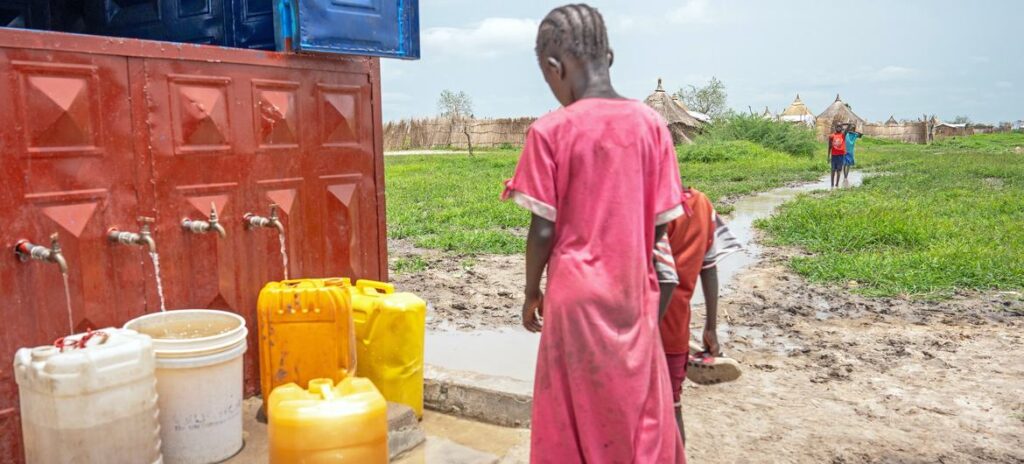
South Sudan is now the second largest recipient of people fleeing Sudan, with more than 810,000 new arrivals since April 2023, included returning South Sudanese refugees who sought shelter in Sudan and refugees and asylum seekers from other countries.
UNHCR warned that the situation is likely to deteriorate, exacerbating the already serious humanitarian problems in the country.
“The conflict in Sudan is hitting South Sudan harder than any other country in the region and contributes to the enormous challenges the country faces,” said Marie-Helene Verney, UNHCR Representative in South Sudan.
“UNHCR and other humanitarian actors have been on the front lines of the humanitarian response and are now calling on others to join forces to help South Sudan integrate the hundreds of thousands who have arrived.”
Rising needs amid economic tensions
More than half of South Sudan refugees are currently being received in the Maban region, with another 135,000 in the Ruweng administrative area. An increasing number of refugees are also settling in urban areas, presenting both opportunities and challenges for their integration into local economies and communities.
The conflict in Sudan has also severely disrupted supply routes and oil exports in South Sudan, fueling inflation and putting pressure on the already fragile economy. Prices of essential goods, especially food, have soared, further limiting resources for host communities and complicating efforts to integrate the newcomers.
In response, UNHCR, together with national authorities and partners, continues to provide critical support to refugees and the communities hosting them.
Efforts include meeting immediate needs such as water, shelter and medical care, as well as advocating for long-term solutions such as access to identity documents, livelihood opportunities and integration into national health and education systems.
However, an end to the fighting in Sudan remains critical to long-term success.
“However, it is clear that the only solution is the end of the conflict in Sudan. South Sudan is reeling from the shock and cannot continue to absorb so much suffering,” said Ms Verney.
Call for global support
UNHCR emphasized the need for additional funding to support and protect vulnerable refugees.
“While funding for South Sudan remains generous, resources to fully meet the needs of its people are still significantly low,” the report said.
With less than three months to go in 2024, operations in South Sudan are only 47 percent funded, the agency said, calling for increased donor support to meet the growing needs of both refugees and host communities.
Deadly clashes in Central Equatoria state
A separate development is the UN mission in South Sudan (UNMISS) expressed concern over a series of violent clashes between armed actors in the greater Juba area of Central Equatoria State, which left at least 24 people dead, including 19 civilians.
The incidents reportedly involved attacks and counter-attacks between former members of the National Salvation Front (NAS) and took place in the Wonduruba and Ganji areas.
“I am deeply concerned by these brutal acts and urge the Government of South Sudan to launch immediate investigations to bring the perpetrators swiftly to justice,” said Nicholas Haysom, Special Representative of the Secretary-General for the country and head of UNMISS.
He stressed that the protection of civilians must remain paramount and respected at all times.
“There is no justification for the extrajudicial killing of civilians. International human rights law sets clear rules, and all parties must adhere to them,” he added.
In response to the violence, UNMISS has intensified patrols in Central Equatoria and is actively working with provincial and local authorities and community leaders to prevent further escalation and ensure the protection of civilians.

